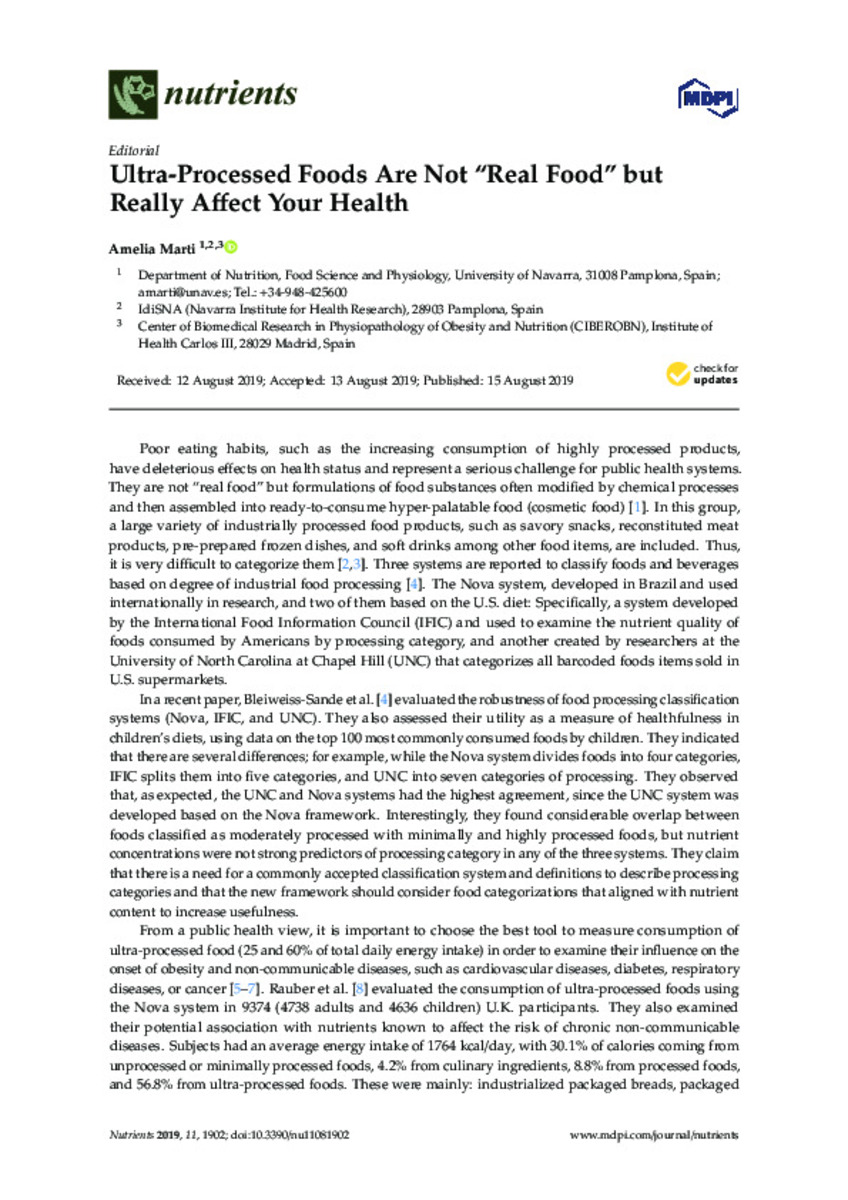Ultra-processed foods are not “real food” but really affect your health
Palabras clave :
Poor eating habits
Highly processed products
Real food
Fecha de publicación :
2019
Nota:
This article is an open access
article distributed under the terms and conditions of the Creative Commons Attribution
(CC BY) license (http://creativecommons.org/licenses/by/4.0/).
Cita:
Marti, A. (Amelia). "Ultra-processed foods are not “real food” but really affect your health". Nutrients. 11 (8), 2019, 1902
Aparece en las colecciones:
Estadísticas e impacto
0 citas en

0 citas en

Los ítems de Dadun están protegidos por copyright, con todos los derechos reservados, a menos que se indique lo contrario.







